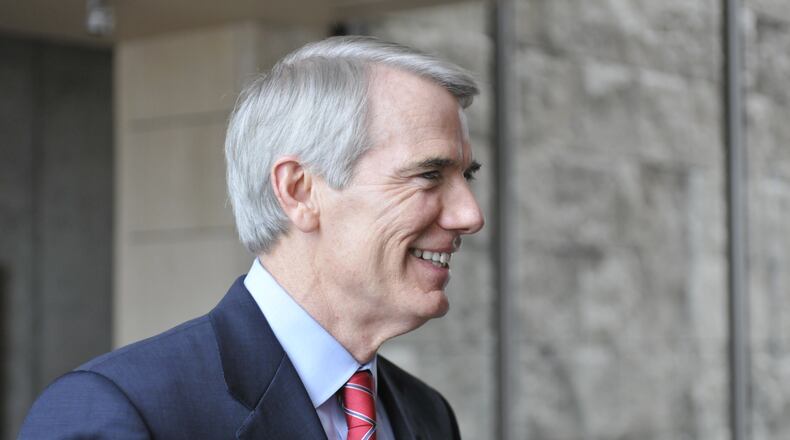On Feb. 25, 2016, Portman said on Twitter that rather than fill the seat left vacant by Scalia’s sudden death, the U.S. Senate should wait until American voters had a say in the November 2016 presidential election.
The Republican-led #Senate is standing firm on the principle that Americans should have a voice in who will be next Supreme Court nominee.
— Rob Portman (@senrobportman) February 25, 2016
Ohio Democratic Party Chairman David Pepper said in a fundraising email: “After helping (Senate Majority Leader) Mitch McConnell block President Barack Obama’s Supreme Court nominee under the guise of it being an election year, Portman has decided to reverse course and help McConnell shove through Trump’s nominee while voters have already started voting. It doesn’t get more hypocritical than that, folks.”
Ginsburg died Sept. 18 — 46 days before the Nov. 3 election. The only vacancy to come closer in an election year was in 1864, when U.S. Supreme Court Chief Justice Roger B. Taney died 27 days before the election. Republican Abraham Lincoln delayed the nomination of Ohioan Salmon P. Chase to the high court until after the election.
Gov. Mike DeWine, who spent 12 years on the Senate Judiciary Committee, said his policy was to withhold judgment until he could examine the nominee. He added that if he were still on the committee, he would conduct due diligence and then vote on the nominee.
About the Author

